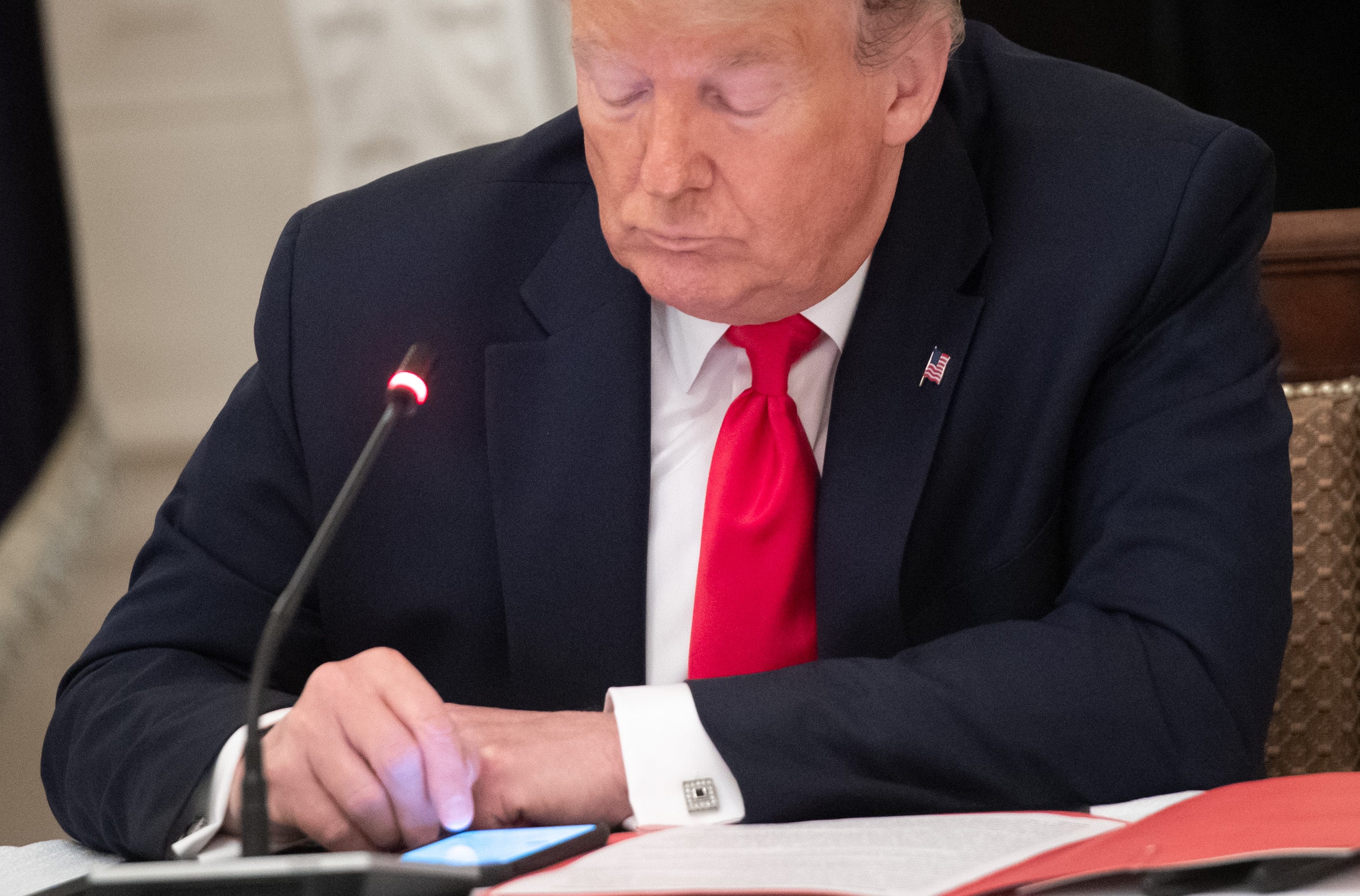Trump is banned from Facebook for two years — and has responded by proving their point
The social media company has finally come to some sort of decision on what to do with the vitriolic ex-president’s account


Your support helps us to tell the story
From reproductive rights to climate change to Big Tech, The Independent is on the ground when the story is developing. Whether it's investigating the financials of Elon Musk's pro-Trump PAC or producing our latest documentary, 'The A Word', which shines a light on the American women fighting for reproductive rights, we know how important it is to parse out the facts from the messaging.
At such a critical moment in US history, we need reporters on the ground. Your donation allows us to keep sending journalists to speak to both sides of the story.
The Independent is trusted by Americans across the entire political spectrum. And unlike many other quality news outlets, we choose not to lock Americans out of our reporting and analysis with paywalls. We believe quality journalism should be available to everyone, paid for by those who can afford it.
Your support makes all the difference.It took a mob storming the US Capitol in hopes of murdering the vice president, but Facebook is now taking the threat posed by Donald Trump seriously.
It’s almost five months to the day that Trump’s near-constant use of social media to stir up hatred, inspire death threats against perceived enemies, and spread rampant lies about the Covid-19 pandemic and the results of the 2020 election inspired a mob to stage an insurrection at the US Capitol in hopes of preventing Congress from certifying President Joe Biden’s electoral college win. And to mark the occasion, the social media giant just announced that the ban they imposed on the now-former president after that insurrection will remain in force for at least two years.
In a press release, the company said the ban would only be lifted after consultation with experts “to assess whether the risk to public safety has receded,” based on “external factors, including instances of violence, restrictions on peaceful assembly and other markers of civil unrest”. Should the experts advise against it, the company will continue extending the Trump ban until the “risk has receded”.
The company also said that in the event Trump is permitted back onto their platform, it would be under threat of “a strict set of rapidly escalating sanctions that will be triggered if Mr Trump commits further violations in future”. If he violates the rules again, those sanctions could include a permanent ban.
While Friday’s announcement leaves open the possibility that Trump will once again be able to use the world’s largest social media platform to communicate with and fundraise from the millions of followers he’d amassed before his suspension, it’s unlikely that the conditions that must be met before he can return will be met before January 7, 2022.
Why? Simply put, the events of January 6 have a long tail. Since January 27 — one week after Biden was sworn in as president — the Department of Homeland Security has released a series of bulletins through the National Terrorism Advisory System, in which the Secretary of Homeland Security warned of the threat posed by violent extremists who have been inspired and incited by Trump’s incessant lying about the 2020 election.
In particular, the bulletin cites “threats that have evolved significantly and become increasingly complex and volatile in 2021,” in part due to “online narratives across sites known to be frequented by individuals who hold violent extremist ideologies,” which “have called for violence against elected officials, political representatives, government facilities, law enforcement, religious or commercial facilities, and perceived ideologically-opposed individuals”.
The department also warned that “social media and online forums are increasingly exploited by these actors to influence and spread violent extremist narratives and activity”.
What the bulletin left unsaid — but was obvious to experts — is that one of the main drivers behind the rise of extremist activity has been Trump himself.
Because the two-year time frame allows for the possibility that Trump will be allowed on the site in the run-up to the 2024 election — an election he has teased the possibility of running in — it will also allow the company to sidestep some complaints about them silencing a potential presidential candidate. But the now-former president has never been one to moderate his behaviour, instead choosing to frame any pushback from social media platforms as “censorship” targeted at his “conservative voice” rather than as a response to his constant stream of abuse, hate speech, and violence-inciting lies.
In a statement responding to the announcement, Trump remained true to form by repeating some of the lies that caused the insurrection that got him banned in the first place. He called the company’s decision “an insult to the record-setting 75M people, plus many others, who voted for us in the 2020 Rigged Presidential Election,” and complained that the company “shouldn’t be allowed to get away with this censoring and silencing”.
It’s almost as if he was trying to prove Facebook’s point.
Join our commenting forum
Join thought-provoking conversations, follow other Independent readers and see their replies
Comments